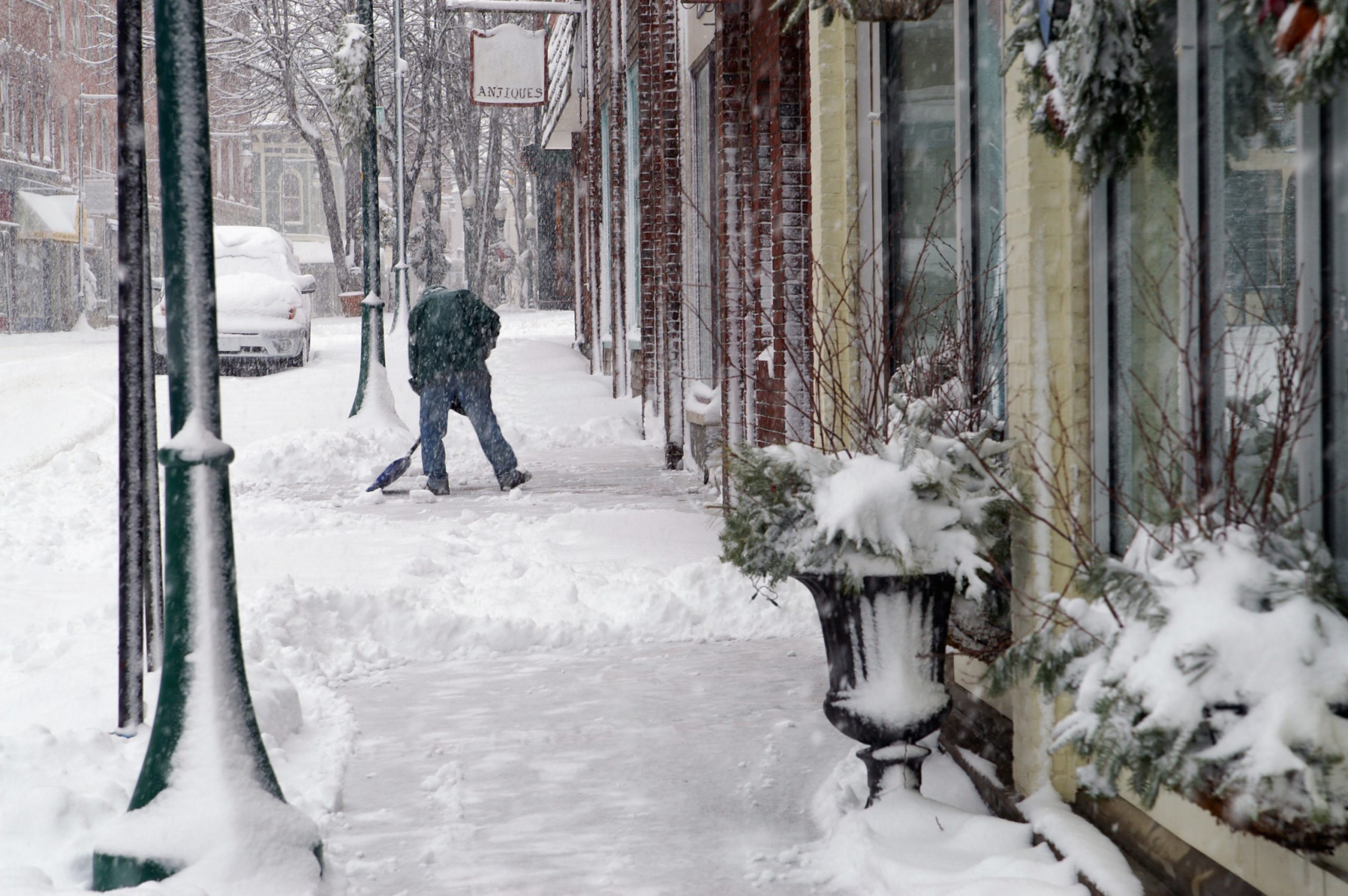Getting your business ready for winter

The colder weather is creeping in, and the heating has gone on across homes and offices. Bad weather, whether it is stormy, snowy or blustery, often comes hand in hand with UK winters. As a businessowner, how you do make sure your business is ready for winter, so you can continue to provide a great service for your clients if something were to happen?
Plan for the worst
According to the Met Office, 43% of small businesses don’t have any continuity, disaster recovery or crisis management plans. If bad weather hits and you don’t have a plan in place, everything from power outages to extreme traffic delays for staff could cause nightmares for your business.
Business in the Community (BITC) has created a ‘Would You Be Ready?’ guide and checklist for small businesses to check if they’re prepared for the unexpected, including floods and cyber-attacks. With a guide for England, Northern Ireland and Wales and another for Scotland, BITC sets out eight steps to help small business owners put processes in place for disruptive events:
Understand your business-critical functions and activities
Set timeframes
Assess your risk
Reduce your risk
Develop an emergency plan
Develop an emergency communications plan
Communicate and rehearse your plans
Revisit and update your plans
Check your building
Broken roof tiles, frozen pipes and faulty heating systems can all cause major issues for businesses. Carrying out a full inspection and risk assessment of your building could save you a headache and large costs later down the line.
It might be tempting to turn the heating off if your building will be closed during part of winter, such as at Christmas, to save money and energy. Water freezes at 32 degrees Fahrenheit (or zero degrees Celsius), so it’s advised to keep buildings at 55 degrees Fahrenheit (12 to 13 degrees Celsius) minimum to avoid pipes freezing, even if the premises are shut.
Don’t get caught out by escape of water
Data from the Association of British Insurers (ABI) shows that the number of escape of water commercial claims has been steadily rising for over a decade. It also highlighted that the average cost of a commercial escape of water claim rose by 22% between 2016 and 2018, increasing from £4,167 to £5,349.
Workplaces often have more water outlets than homes, including air conditioning, heating systems and water coolers. Therefore, the impact of any escape of water could cause severe damage to a commercial property.
There are a few ways to reduce the likelihood of escape of water happening in your office or business premises. We’d advise carrying out regular assessments with a trained professional, who can check over your whole water system and highlight any issues. In the run up to and during the winter months, you may want to think about having monthly health checks to ensure everything is in working order. You could also look at installing a ‘Leakbot’ – these smart water leak detectors can spot hidden leaks before they become a big problem.
Keeping your staff well
Covid has highlighted how an infectious illness can have a huge impact on individuals and businesses. It’s thought that lower levels of Vitamin D due to lack of sunlight in December, January and February can weaken our immune system, making us more prone to catching viruses and infections.
The last thing you want is a large portion of your team off sick at once. One option is to encourage staff who are feeling under the weather to work from home, so their colleagues don’t catch it.
Another way to prevent illnesses spreading is advising your people to ‘Catch it. Bin it. Kill it’:
Catch it: cough or sneeze into a tissue
Bin it: throw away tissues straight away
Kill it: Wash hands as soon as possible.
The NHS has a ‘Catch it. Bin it. Kill it’ poster that you can put up in your premises.
You could also look at encouraging vulnerable workers to get a flu jab. The flu vaccine is free on the NHS for people who:
Are 50 and over (including those who’ll be 50 by 31 March 2022)
Have certain health conditions, such as asthma, diabetes and chronic heart disease
Are pregnant
Receive a carer’s allowance, or are the main carer for an older or disabled person who may be at risk if they get sick
Live with someone who is more likely to get infections (such as someone who has HIV, has had a transplant or is having certain treatments for cancer, lupus or rheumatoid arthritis)
Are frontline health or social care workers
Make sure your Business Insurance is up to date
As your business evolves, your insurance needs may also change. Perhaps you’ve moved offices, have extended your premises or have grown your team. To discuss a new policy or simply find ways to strengthen your current package, the Edwards Insurance Brokers team are here to help you find the best cover for you and your people. Get in touch by calling 01564 730 900.






